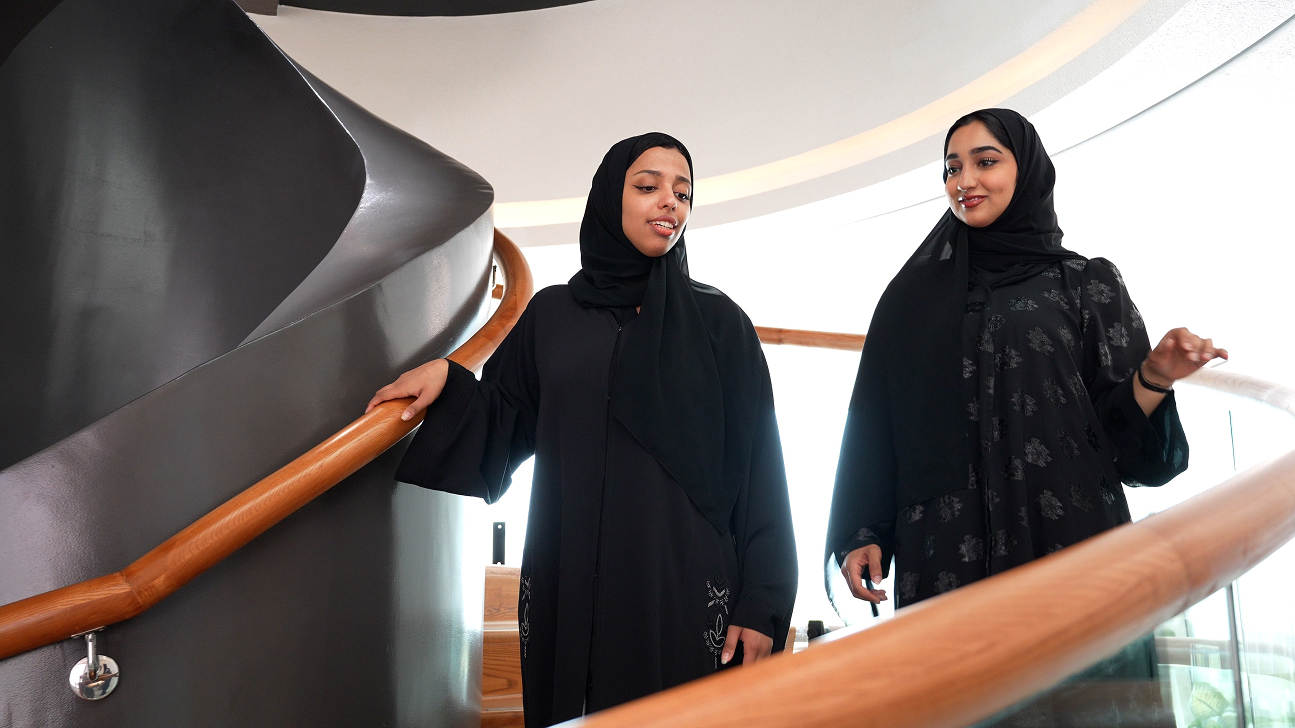New Human Phenotype Project findings illuminate pathways to precision medicine
Tuesday, July 15, 2025

The Human Phenotype Project (HPP), a large-scale, deep-phenotype prospective longitudinal and ethnically diverse cohort study, today announced the publication of its latest groundbreaking findings in the prestigious journal, Nature Medicine. This landmark research showcases an unprecedented understanding of the health-disease continuum and was led by researchers from Mohamed bin Zayed University of Artificial Intelligence (MBZUAI), and numerous international collaborators.
Eric Xing, MBZUAI President and University Professor, and Eran Segal, Department Chair and Professor of Computational Biology at MBZUAI, were co-senior authors of the paper which is poised to redefine our understanding of health and disease, paving the way for personalized medicine.
With approximately 28,000 participants signed up and more than 13,000 having completed their initial visit, the HPP is at the forefront of identifying novel molecular signatures and developing AI-based predictive models for disease onset and progression.
“The Human Phenotype Project’s pioneering research is more than scientific advancement; it represents a paradigm shift in how we understand human health. By deeply mapping the dynamic interplay of biology and lifestyle across the lifespan, and with advanced AI, we are creating a personalized blueprint for the individual’s wellbeing. This is the dawn of true precision medicine, enabling us to embark on an individualized quest for healthier aging and moving us closer to a future where proactive, tailored health is a universal reality,” said Xing.
The HPP distinguishes itself through its unique deep and longitudinal profiling, collecting a vast array of data that includes medical history, lifestyle and nutritional habits, vital signs, anthropometrics, blood tests, continuous glucose and sleep monitoring, various imaging modalities, and extensive molecular profiling (including the transcriptome, genetics, gut, vaginal, and oral microbiome, metabolome, and immune system).
The HPP’s vision is to extend its AI framework to integrate all data modalities of each subject as a continuous sequence of diverse medical events, creating a digital twin that can simulate interventions and predict health trajectories and outcomes.
“The Human Phenotype Project’s comprehensive approach integrating unprecedented depth of data with cutting-edge AI, is uniquely positioned to transform precision medicine and preventative care by enabling us to create a ‘personalized digital twin’ that can simulate interventions and predict health trajectories,” said Segal.
“Through the HPP, we are uncovering novel insights into the variation of phenotypes across age and ethnicity, and re-evaluating traditional diagnostic approaches by establishing more refined, personalized norms. The longitudinal nature of our data allows us to track dynamic changes and identify early markers of health deterioration, which is crucial for true personalized health strategies,” he added.
Key highlights from the latest findings – as published in Nature Medicine:
- Revealing phenotypic variation across age and ethnicity: HPP analyses provide novel insights into how phenotypes vary with age and ethnicity, highlighting the importance of ethnically diverse cohorts and the need for establishing age-dependent norms for medical tests. For example, the study found significant differences in eating habits, lifestyle behaviors, and blood test results across different ethnic and age groups.
- Challenging traditional diagnostic approaches: The project’s deep clinical and molecular phenotyping can re-evaluate existing diagnostic methods. For instance, continuous glucose monitoring (CGM) data captured substantial day-to-day fasting glucose variability, leading to the reclassification of 40% of individuals with ‘normal’ fasting glucose levels as prediabetic, a depth of insight not achievable with single-point measurements.
- Differentiating chronological vs. biological aging: The HPP has provided significant insights into the distinction between chronological age and biological aging. Machine learning models, based on cardiovascular system measures and RNA-seq gene expression data, revealed that individuals with accelerated biological aging consistently exhibit worse clinical metrics, such as elevated triglycerides, increased blood glucose, higher visceral fat, and elevated HbA1c, establishing biological aging as a powerful predictor of health risks.
- Uncovering disease-associated microbiome signatures: By leveraging its large, deeply phenotyped dataset, the HPP enables the extraction of well-matched healthy controls for disease cohorts. This capability has been critical in identifying unique microbial profiles associated with conditions like breast cancer, inflammatory bowel disease (IBD), and endometriosis, with key bacterial species showing significant differences between patients and controls.
- Generating individualized hypotheses for disease pathogenesis: The integration of metabolomic data with diverse HPP datasets allows for personalized hypotheses about disease mechanisms. For pancreatic cancer patients, the project pinpointed determinants of metabolite deviations, showing that metabolic mechanisms underlying disease progression can differ substantially between individuals despite clinical similarities, emphasizing the need for personalized treatment strategies.
- Quantifying the impact of lifestyle on health: The HPP’s extensive collection of lifestyle data, including comprehensive dietary assessments (with over 3 million meals logged) and physical activity, systematically identifies associations between lifestyle factors and health outcomes. Findings show that ultra-processed food (UPF) consumption is significantly associated with unfavorable health outcomes (e.g., increased BMI, elevated blood pressure, reduced gut microbiome diversity), while Mediterranean, Paleo, vegetarian, and vegan diets are linked to favorable health metrics.
- Pioneering multimodal AI health models: The HPP is leveraging its rich datasets to develop advanced AI. Models like COMPRER, which integrates fundus imaging and carotid ultrasound, have outperformed existing methods in predicting cardiovascular diseases. GluFormer, a glycemic control foundation model, can predict which prediabetic individuals are more likely to progress to diabetes more effectively than standard care measures.
Related
MBZUAI launches Ruwwad AI Scholars Fellowship to build UAE’s next generation of AI faculty
The program will prepare Emirati Ph.D. graduates for future faculty careers by offering funded fellowships at leading.....
Read MoreUAE to deploy 8 exaflop supercomputer in India to strengthen local sovereign AI infrastructure
MBZUAI will partner with G42, Cerebras, and India’s Centre for Development of Advanced Computing to deliver the.....
- supercomputer ,
- sovereign ,
- collaboration ,
- summit ,
- partnership ,
MBZUAI report on AI for the global south launches at India AI Impact Summit
The report identifies 12 critical research questions to guide the next decade of inclusive and equitable AI.....
- social impact ,
- Report ,
- equitable ,
- global south ,
- AI4GS ,
- summit ,
- inclusion ,


